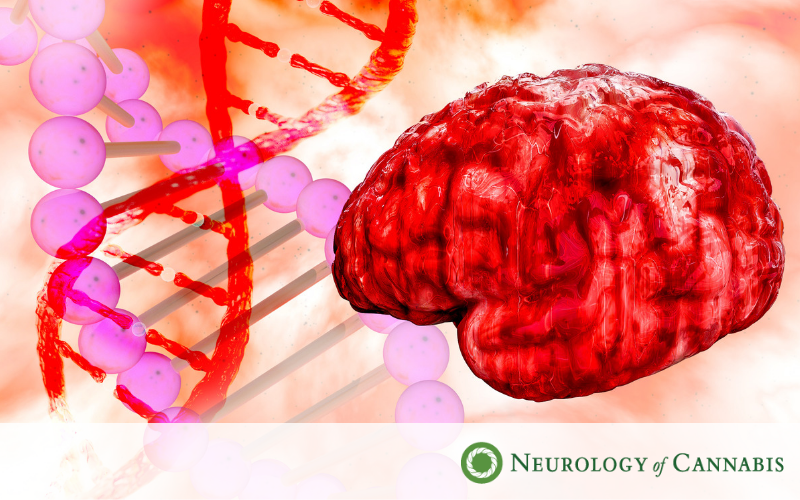The brain is the body’s control center. Brain disorders impact this control center and may influence speech, thoughts, mood, memory, and movement. This is, understandably, distressing for patients with a brain disorder. When it comes to medical marijuana and brain disorders, the initial research and anecdotal evidence is promising. Patients are seeing symptom relief, including lower muscle spasticity, reduced pain, and improved appetite with cannabis use.
To know whether medical marijuana is right for you or a loved one, it is critical to learn about how marijuana impacts common brain disorders. Although this article provides an overview, you can find more in-depth information about marijuana’s powerful healing properties when it comes to brain disorders and other health conditions by reviewing The Sacred Plant’s outstanding video series and consulting an expert physician, such as Dr. Daniel P. Stein at Neurology of Cannabis.
Medical Marijuana and Brain Disorders: The Benefits
Although many brain disorders share common symptoms, each disorder responds to medical marijuana differently. Here are some of the most common brain disorders along with how medical marijuana can help ease symptoms and slow disease progression.
Amyotrophic Lateral Sclerosis (ALS)
What it is: ALS is a rapidly progressing disease affecting the motor neurons of the spinal cord and brain stem, according to a review of cannabis research from Current Neuropharmacology. ALS causes muscles to weaken over time, which can lead to muscle cramps and twitching and difficulty with daily activities. The exact cause of ALS is unknown.
How medical marijuana can help: The Current Neuropharmacology review of research found evidence that cannabis could help with symptoms such as:
- Pain
- Muscle spasticity
- Appetite loss
- Difficulty sleeping
- Anxiety and depression
- Impaired breathing
ALS patients who use medical marijuana may see symptom relief and an improved quality of life. They feel more relaxed and less anxious. Cannabis may also help slow the progress of the disease itself, further improving quality of life.
Multiple Sclerosis (MS)
What it is: MS is an abnormal response of the body’s immune system that focuses on the central nervous system, according to the National Multiple Sclerosis Society. The immune system causes inflammation that damages myelin, which is a fatty substance that protects nerve fibers. Common symptoms include fatigue, muscle spasticity, weakness, pain, and numbness or tingling.
How medical marijuana can help: The American Academy of Neurology did a review of research regarding MS and marijuana. It found strong evidence that medical marijuana could reduce spasticity and lessen central pain, which includes feelings of tingling and numbness. They found moderate evidence that marijuana could lessen painful spasms and decrease frequent urination. As with ALS, easing MS symptoms can help improve quality of life for patients, allowing many to improve their activity levels.
Alzheimer’s Disease

What it is: Alzheimer’s disease is an age-related neurodegenerative disorder. It typically begins with loss of memory, which progresses into language and behavioral difficulties.
How medical marijuana can help: Preliminary research indicates that THC, one of the compounds in marijuana, may help remove a toxic protein that causes Alzheimer’s disease, slowing its progress. There is also preclinical research that indicates that cannabis may help with agitation and aggression, which are frustrating symptoms of patients and caregivers alike. Many with Alzheimer’s disease also struggling with depression and anxiety, which can be eased with medical marijuana use.
The Current Neuropharmacology review also notes that cannabis could help with late-stage Alzheimer’s disease, which is often marked by sleeping difficulties and loss of appetite. Cannabis helps to stimulate appetite and can help patients fall asleep more easily and stay asleep.
Overall, there is promising research showing that marijuana can help ease Alzheimer’s disease symptoms and could help slow the progression of the disease.
Parkinson’s Disease
What it is: Parkinson’s disease is a neurodegenerative disorder that primarily affects dopamine-producing neurons. Symptoms develop over time, and can include:
- Tremors
- Limb rigidity
- Difficulties with balance and with walking
- Slowness of movement
There are non-movement-related symptoms that can impact those with Parkinson’s as well, including depression and sleep disorders.
How medical marijuana can help: Medical marijuana can help with both movement and non-movement related symptoms. Cannabis can help ease depression and improve sleep. There is also evidence to show that Parkinson’s disease symptoms may be caused by irregularities in the endocannabinoid system, which is responsible for homeostasis, or balance, in the body.
The endocannabinoid system can be influenced by CBD, THC, and other compounds found in marijuana, which may be why cannabis improves Parkinson’s disease symptoms. According to the Current Neuropharmacology review, patients who used cannabis showed improvement with motor symptoms such as tremors, rigidity, and slowness of movement. It also helped ease the pain some experienced due to their Parkinson’s disease.
Where to Learn More

If you or a loved one is experiencing a brain disorder, it may be time to consider medical marijuana. To learn more about marijuana and brain disorders, the videos from The Sacred Plant are thorough and enlightening, covering a number of medical conditions that can be eased by cannabis. To learn more about the specifics of how medical cannabis could work for you, consider making an appointment with Dr. Stein at Neurology of Cannabis.
Dr. Stein has more than 25 years of practice experience, and his background in neurology has given him unique insights into how medical marijuana can improve the quality of life for those with brain disorders. He trained at prestigious institutions such as the National Institute of Health in Immunology of Neuromuscular Disease and the Cleveland Clinic Foundation.
Dr. Stein takes a personal approach with his practice, meeting with each patient, reviewing his or her medical records, and making individualized recommendations. His office’s inclusive pricing model makes getting expert cannabis advice affordable. You will receive professional care in a friendly environment. Make an appointment with Neurology of Cannabis today.


